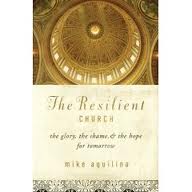What is old is new again. That’s why the Fathers are so important, they’ve done battle with the heresies that continue to plaque our Church even today. Also in his writings you can see the “Theology of the Body”…1800 years or so before we hear from Pope John Paul II. Faith and Reason can live in harmony…then knew it then and we can be confident about that now.
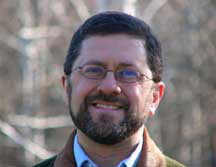 Take a listen to Mike Aquilna, who does a great job giving us the life of this early, early father of the Church, Clement of Alexandria.
Take a listen to Mike Aquilna, who does a great job giving us the life of this early, early father of the Church, Clement of Alexandria.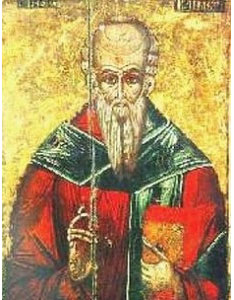
[powerpress]
Here in a very small nutshell is an overview of St. Clement of Alexandria –
from wikipedia –
Titus Flavius Clemens (c.150 – c. 215), known as Clement of Alexandria (to distinguish him from Clement of Rome), was a Christian theologian and the head of the noted Catechetical School of Alexandria. Clement is best remembered as the teacher of Origen. He united Greek philosophical traditions with Christian doctrine and valued gnosis that with communion for all people could be held by common Christians specially chosen by God.Though he constantly opposes the concept of gnosis as defined by the Gnostics, he used the term “gnostic” for Christians who had attained the deeper teaching of the Logos.He developed a Christian Platonism. He presented the goal of Christian life as deification, identified both as Platonism’s assimilation into God and the biblical imitation of God.
Like Origen, he arose from Alexandria’s Catechetical School and was well versed in pagan literature.Origen succeeded Clement as head of the school.Alexandria had a major Christian community in early Christianity, noted for its scholarship and its high-quality copies of Scripture.
Clement is counted as one of the early Church Fathers. He advocated a vegetarian diet and claimed that the apostles Peter, Matthew, and James the Just were vegetarians. – wikipedia
Great trilogy of St. Clement of Alexandria
The trilogy into which Clement’s principal remains are connected by their purpose and mode of treatment is composed of:
- the Protrepticus (“Exhortation to the Greeks”)
- the Paedagogus (“Instructor”)
- the Stromata (“Miscellanies”)
The first book deals with the religious basis of Christian morality, the second and third with the individual cases of conduct.
Tags: alexanderia, Church, clement of alexandria, early church fathers, faith and reason, father, father of the church, fathers mike, fathers of the church, gnostics, heresy, mike aquilina, Mike Aquilna
This entry was posted on Thursday, December 4th, 2014 at 8:26 am
You can follow any responses to this entry through the RSS 2.0 feed.
The ultimate homiliest… so much so that he is known forever after as St. Peter Chrysologus (Peter of the Golden Words).   Born in 380 and died July 30 45o A.D. He was known for his short and inspired talks…make note: can be inspired AND short…wow! He spoke out against all those nasty heresies of the time (Aranism to name just one) and encouraged daily communion.
Take a listen to Mike Aquilina (speaking of Mr. Golden Words) talk to us about this time in history and all those “isms”, and how the Holy Spirit worked through the Church to battle those false teachings
[powerpress]
“He is The Bread sown in the virgin, leavened in the Flesh, molded in His Passion, baked in the furnace of the Sepulchre, placed in the Churches, and set upon the Altars, which daily supplies Heavenly Food to the faithful.”
“Today Christ works the first of his signs from heaven by turning water into wine. But water [mixed with wine] has still to be changed into the sacrament of his blood, so that Christ may offer spiritual drink from the chalice of his body, to fulfill the psalmist’s prophecy: How excellent is my chalice, warming my spirit.”
Tags: Church, Golden Words, heresy, holy spirit, mike aquilina, Resilient Church, st peter chrysologus, word among us press
This entry was posted on Tuesday, July 30th, 2013 at 10:57 am
You can follow any responses to this entry through the RSS 2.0 feed.
On Holy Mother Mary
On Holy Repentance
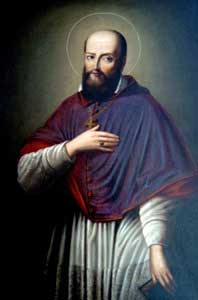 CHAPTER III. Devotion is suitable to every Vocation and Profession.
CHAPTER III. Devotion is suitable to every Vocation and Profession.
WHEN God created the world He commanded each tree to bear fruit after its kind; 88 Gen. i. 12. and even so He bids Christians,—the living trees of His Church,—to bring forth fruits of devotion, each one according to his kind and vocation.
A different exercise of devotion is required of each—the noble, the artisan, the 9 servant, the prince, the maiden and the wife; and furthermore such practice must be modified according to the strength, the calling, and the duties of each individual.
I ask you, my child, would it be fitting that a Bishop should seek to lead the solitary life of a Carthusian? And if the father of a family were as regardless in making provision for the future as a Capucin, if the artisan spent the day in church like a Religious, if the Religious involved himself in all manner of business on his neighbour’s behalf as a Bishop is called upon to do, would not such a devotion be ridiculous, ill-regulated, and intolerable? Nevertheless such a mistake is often made, and the world, which cannot or will not discriminate between real devotion and the indiscretion of those who fancy themselves devout, grumbles and finds fault with devotion, which is really nowise concerned in these errors.
No indeed, my child, the devotion which is true hinders nothing, but on the contrary it perfects everything; and that which runs counter to the rightful vocation of any one is, you may be sure, a spurious devotion.
Aristotle says that the bee sucks honey from flowers without damaging them, leaving them as whole and fresh as it found them;—but true devotion does better still, for it not only hinders no manner of vocation or duty, but, contrariwise, it adorns and beautifies all.
Throw precious 10 stones into honey, and each will grow more brilliant according to its several colour:—and in like manner everybody fulfils his special calling better when subject to the influence of devotion:—family duties are lighter, married love truer, service to our King more faithful, every kind of occupation more acceptable and better performed where that is the guide.
It is an error, nay more, a very heresy, to seek to banish the devout life from the soldier’s guardroom, the mechanic’s workshop, the prince’s court, or the domestic hearth. Of course a purely contemplative devotion, such as is specially proper to the religious and monastic life, cannot be practised in these outer vocations, but there are various other kinds of devotion well-suited to lead those whose calling is secular, along the paths of perfection. The Old Testament furnishes us examples in Abraham, Isaac and Jacob, David, Job, Tobias, Sarah, Rebecca and Judith; and in the New Testament we read of St. Joseph, Lydia and Crispus, who led a perfectly devout life in their trades:—we have S. Anne, Martha, S. Monica, Aquila and Priscilla, as examples of household devotion, Cornelius, S. Sebastian, and S. Maurice among soldiers;—Constantine, S. Helena, S. Louis, the Blessed Amadaeus, 99 It is probable that S. Francis here means to indicate Amadeo IX., Duke of Savoy, who died 1472. and 11 S. Edward on the throne. And we even find instances of some who fell away in solitude,—usually so helpful to perfection,—some who had led a higher life in the world, which seems so antagonistic to it. S. Gregory dwells on how Lot, who had kept himself pure in the city, fell in his mountain solitude. Be sure that wheresoever our lot is cast we may and must aim at the perfect life.
Check out other Discerning Hearts Posts on St. Francis de Sales
[p2p type=”id” value=”2281″]
[p2p type=”id” value=”2622″]
Meditations from the Introduction to the Devout Life by St. Francis de Sales
Tags: chapter xix, devotion, family, heresy, holy mother mary, introduction to the devout life, love, repentance, st francis de sales
This entry was posted on Thursday, January 24th, 2013 at 12:07 am
You can follow any responses to this entry through the RSS 2.0 feed.
Episode 4 – Heresy and Orthodoxy
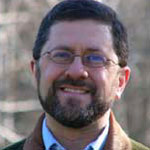 The Resilient Church with Mike Aquilina, offers a fascinating look at the trials and triumphs of the Catholic Church over the past two thousand years. Fast-paced sketches of critical periods in church history give readers perspective on the challenges faced by the church today. Mike Aquilina does not shrink from the realities of the past, including badly behaved leaders and those who betrayed the Lord. Yet he also leaves us all with well-founded hope for the future: God remains faithful in every circumstance and fulfills his promise to remain with his church always. Hosted by Kris McGregor
The Resilient Church with Mike Aquilina, offers a fascinating look at the trials and triumphs of the Catholic Church over the past two thousand years. Fast-paced sketches of critical periods in church history give readers perspective on the challenges faced by the church today. Mike Aquilina does not shrink from the realities of the past, including badly behaved leaders and those who betrayed the Lord. Yet he also leaves us all with well-founded hope for the future: God remains faithful in every circumstance and fulfills his promise to remain with his church always. Hosted by Kris McGregor
Also visit Mike’s “Discerning Hearts†page for more audio downloads and information!
Tags: catholic, catholic podcast, catholic prayer, cathollc spirituality, church history, heresy, mike aquilina, orthodoxy, Resilient Church, st. paul center for biblical theology
This entry was posted on Thursday, May 19th, 2011 at 10:31 pm
You can follow any responses to this entry through the RSS 2.0 feed.


